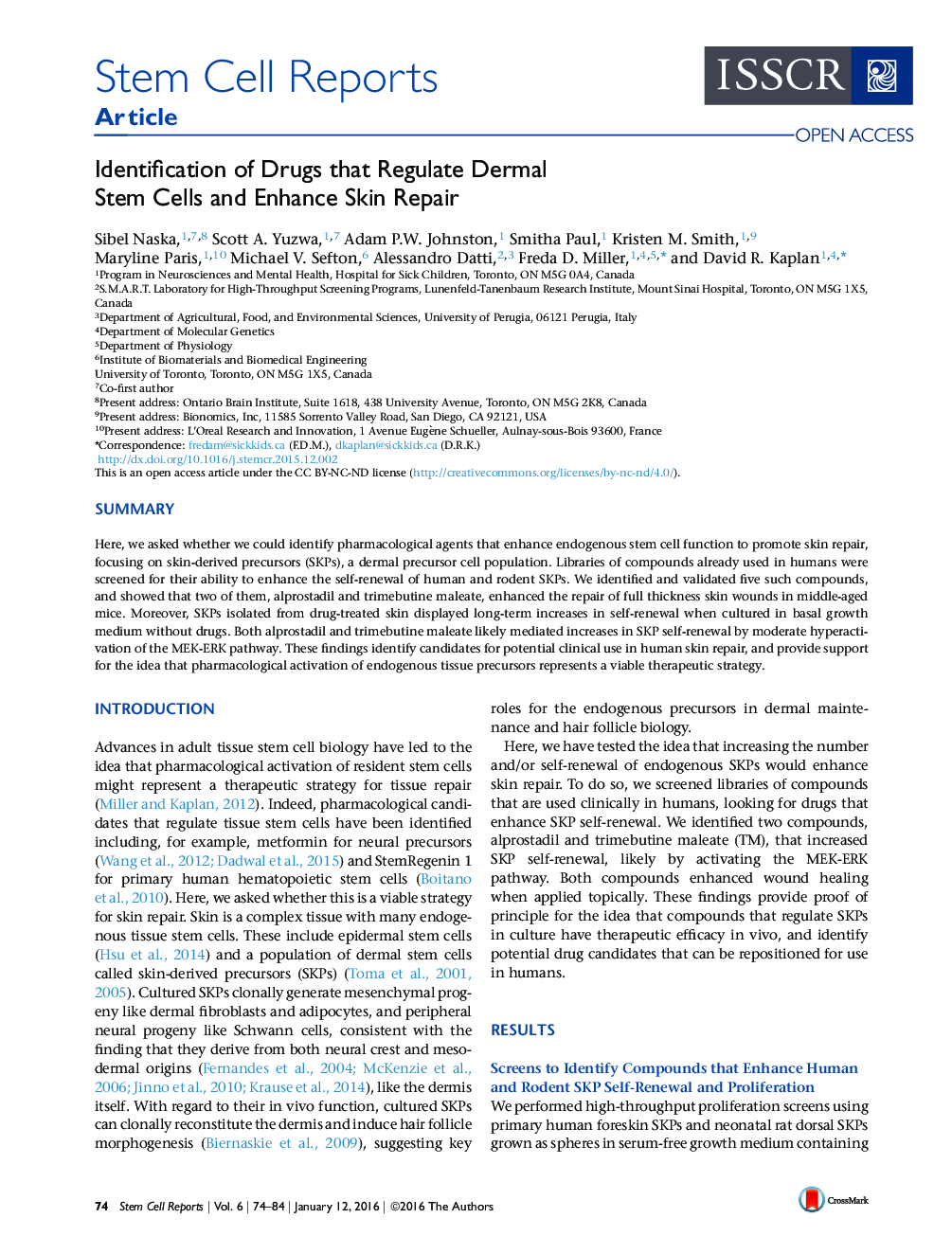| Article ID | Journal | Published Year | Pages | File Type |
|---|---|---|---|---|
| 2093290 | Stem Cell Reports | 2016 | 11 Pages |
•Small-molecule screens identify compounds that enhance SKP self-renewal•Alprostadil and trimebutine maleate both increase SKP self-renewal•Both compounds likely act by promoting activation of the MEK-ERK pathway•Both compounds activated dermal precursors in vivo to enhance wound healing
SummaryHere, we asked whether we could identify pharmacological agents that enhance endogenous stem cell function to promote skin repair, focusing on skin-derived precursors (SKPs), a dermal precursor cell population. Libraries of compounds already used in humans were screened for their ability to enhance the self-renewal of human and rodent SKPs. We identified and validated five such compounds, and showed that two of them, alprostadil and trimebutine maleate, enhanced the repair of full thickness skin wounds in middle-aged mice. Moreover, SKPs isolated from drug-treated skin displayed long-term increases in self-renewal when cultured in basal growth medium without drugs. Both alprostadil and trimebutine maleate likely mediated increases in SKP self-renewal by moderate hyperactivation of the MEK-ERK pathway. These findings identify candidates for potential clinical use in human skin repair, and provide support for the idea that pharmacological activation of endogenous tissue precursors represents a viable therapeutic strategy.
Graphical AbstractFigure optionsDownload full-size imageDownload as PowerPoint slide
